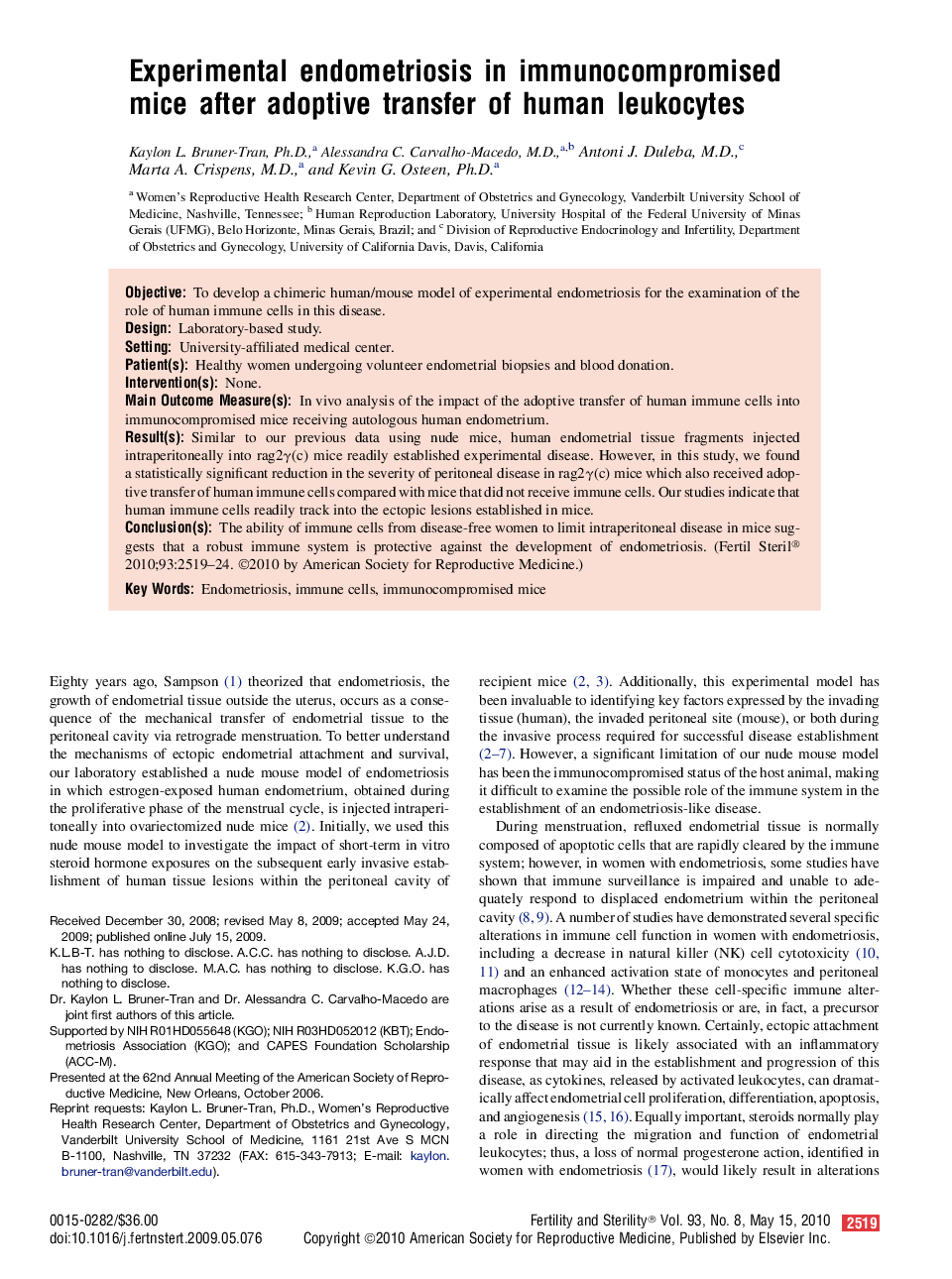| Article ID | Journal | Published Year | Pages | File Type |
|---|---|---|---|---|
| 3939664 | Fertility and Sterility | 2010 | 6 Pages |
ObjectiveTo develop a chimeric human/mouse model of experimental endometriosis for the examination of the role of human immune cells in this disease.DesignLaboratory-based study.SettingUniversity-affiliated medical center.Patient(s)Healthy women undergoing volunteer endometrial biopsies and blood donation.Intervention(s)None.Main Outcome Measure(s)In vivo analysis of the impact of the adoptive transfer of human immune cells into immunocompromised mice receiving autologous human endometrium.Result(s)Similar to our previous data using nude mice, human endometrial tissue fragments injected intraperitoneally into rag2γ(c) mice readily established experimental disease. However, in this study, we found a statistically significant reduction in the severity of peritoneal disease in rag2γ(c) mice which also received adoptive transfer of human immune cells compared with mice that did not receive immune cells. Our studies indicate that human immune cells readily track into the ectopic lesions established in mice.Conclusion(s)The ability of immune cells from disease-free women to limit intraperitoneal disease in mice suggests that a robust immune system is protective against the development of endometriosis.
